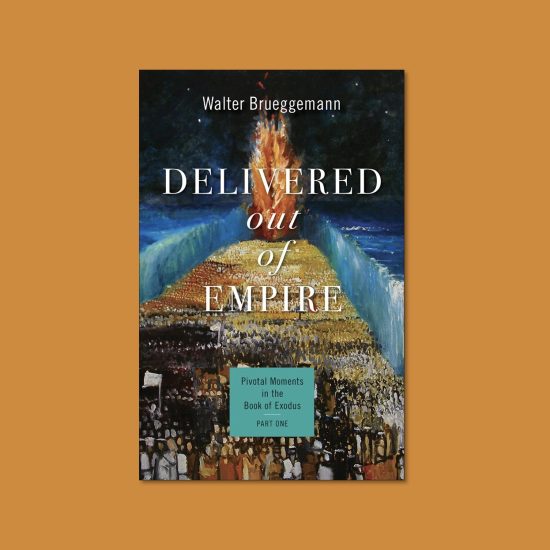
 Moses’ Early Life
Moses’ Early Life
Formations: February 2, 2020
Scripture: Exodus 2:1-15a

Michael K Olmsted
As a pastor, I have shared in the joy of many births with families from varied financial and cultural backgrounds. The common thread in all those occasions was joy and hope that the baby would become a well-adjusted and happy adult. Social status and finances often shaped some expectations.
Can you identify with parents whose newborn son was marked for death by government policy? Can you imagine that son would not only survive but grow up in the palace of a king, commit murder, and end up in a nowhere wilderness exile? Every life is a saga of sorts, so forget birth order, luck, soothsayers, and philosophers, and understand there could be more to life.
Moses was born in the worst of times. He descended from what were considered a bunch of lowlife wilderness wanderers who came to Egypt for water and food, outstayed their welcome, posed a threat to the country’s culture and financial equilibrium, and suffered from ethnic cleansing.
This is a story of God’s power and grace, but the chapters are not predictable. The king issued an edict that every male Hebrew child was to be killed at birth to reduce their numbers and power. Moses name may be derived from the Hebrew name mashah (meaning “to draw out”) or from the common Egyptian mose(s) or mese(s) as in some pharoahs’ names, Ahmose or Thutmose. The use of mose(s) without the prefix means “a son without a father.” As a fatherless baby found floating in a basket among the Nile reeds, Moses grew up in a family where his origin was not mentioned and his very existence was secure only because of the pharaoh’s daughter. Since we know the outcome of this story, we know God was at work in an impossible situation that finds its meaning in eternity.
Have you ever noticed that life is not fair? Consider Moses’ life. He survived the murderous policy of Pharaoh because of a plan hatched by a Hebrew mother and daughter: put together a floating basket waterproofed with pitch, place it among the Nile reeds where one of Pharaoh’s daughters liked to bathe, hope and pray for a miracle, and be ready to help. Risky? You bet! We may not have all the details, but we can understand a mother’s love for her helpless baby and her maternal instinct.

Photo by Aaron Burden on Unsplash
The years passed and very little changed. But that “adopted son” of one of Pharaoh’s daughters grew up in a world of privilege, education, and possibilities. How much did Moses know about his Hebrew heritage and the promises of Abraham’s God in a pagan world of multiple gods and royal privileges? His name was not only devoid of his father’s name, it also meant “son of” or “drawn out of.” Moses would never be a “son of Egypt” or a “son of pharaoh.” He would be known as God’s deliverer of his people, the one who would be “drawn out” by God in a miraculous exodus.
Knowing his heritage, there must have been numerous times Moses felt guilt or concern about injustices pressed upon his people. The day came when resentment evolved into anger and injustice could no longer be ignored. He saw an Egyptian beating a Hebrew workman. He killed the Egyptian and buried him in the sand. The next day, when Moses encountered two Hebrews fighting he intervened: “Why do you strike your fellow Hebrew?” (v. 13). Anger only increased as one of the men rebuked Moses: “Who made you a ruler and judge over us? Do you intend to kill me as you killed the Egyptian?” (v. 14). The injustice and cruelty of all the years came to a head, and I believe Moses fully faced, for the first time, the guilt attached to his privilege and the overwhelming suffering of his people. Add to that moment of reckoning the threat of death from Pharaoh
Suddenly Moses has no home, no identity, no future. What was the purpose of his life? Who was he? So he ran far away to the wilderness of Midian, a place of obscurity. But it was not to be. You can never really close the door on the past. You make choices, but the past is what has shaped you, a resource you build upon and learn from, or a burden you allow to color any future.
Do not ignore the one factor that can transform life and even turn the past into a valuable tool – faith! Moses would never forget his privileged life in Egypt and the suffering of his people. As the leader of Israel out of Egypt, Moses knew Pharaoh, the strength of the Egyptian army, the potential weaknesses of his enemy, and the power of God. I suspect he began to understand the actions of his mother and sister as the work of God. Did he also see those years in the royal palaces as a valuable lesson in leadership, military planning, and the way the world thinks? There are no meaningless lessons in life, only our choice to learn from them or ignore them.
Centuries later, in his defense before the high priest and the Sanhedrin Council, Stephen used Moses as part of his defense: “When (Moses) saw one of them being wronged, he defended the oppressed man and avenged him by striking down the Egyptian. He supposed that his kinfolk would understand that God through him was rescuing them, but they did not understand” (Acts 7:24-25). Moses’ people in Egypt did not understand that God would use him to set his people free, but they would learn, as did Moses through hard experience, that God’s purpose and promises do not fade away. Midian was not a hiding place, as Moses planned. It was a new beginning where God was already waiting for him.
The first month of this new year is already gone. Where do you find yourself spiritually? Are you hiding from the past, burdened by disappointment, or seeking God’s guidance and blessings?
The beginning of a new year is my time to remember the past: challenges, heartaches, and the blessings and guidance of God. In the grace of God there is healing and hope, There is remembrance of God’s faithfulness. Moses needed time to heal and break free of his guilt and confusion, to discover God in a new way. Read about the burning bush.
He became Israel’s hero, but before that Moses had to learn to trust God and to believe there is joy greater than the world’s ideas of success and power. There is a loving God who cannot be confined by religious traditions, political movements, and material success. God is present in the broken hearts of a captive people, in a crying baby among the Nile reeds, in a mother and sister who dare to risk all, in an Egyptian princess whose love overcomes a government command, and in the immeasurable grace that becomes the ultimate gift of eternal life for all who believe in Christ.
Formations is a curriculum series from Smyth & Helwys Publishing, Inc. through NextSunday Resources.
The PDF download requires the free Acrobat Reader program. It can be downloaded and installed at https://get.adobe.com/reader (uncheck optional offers first).



